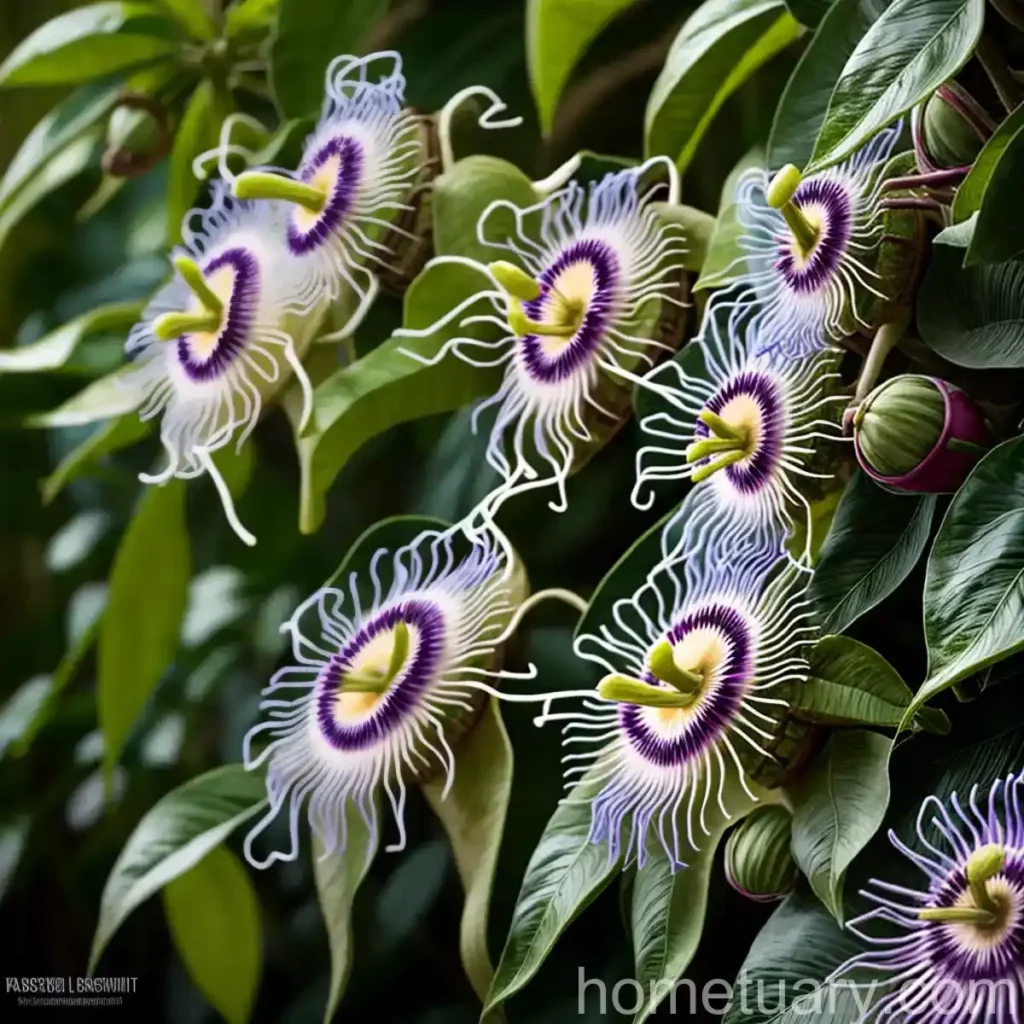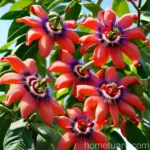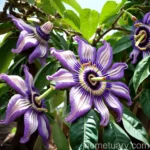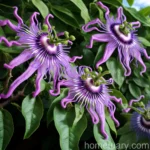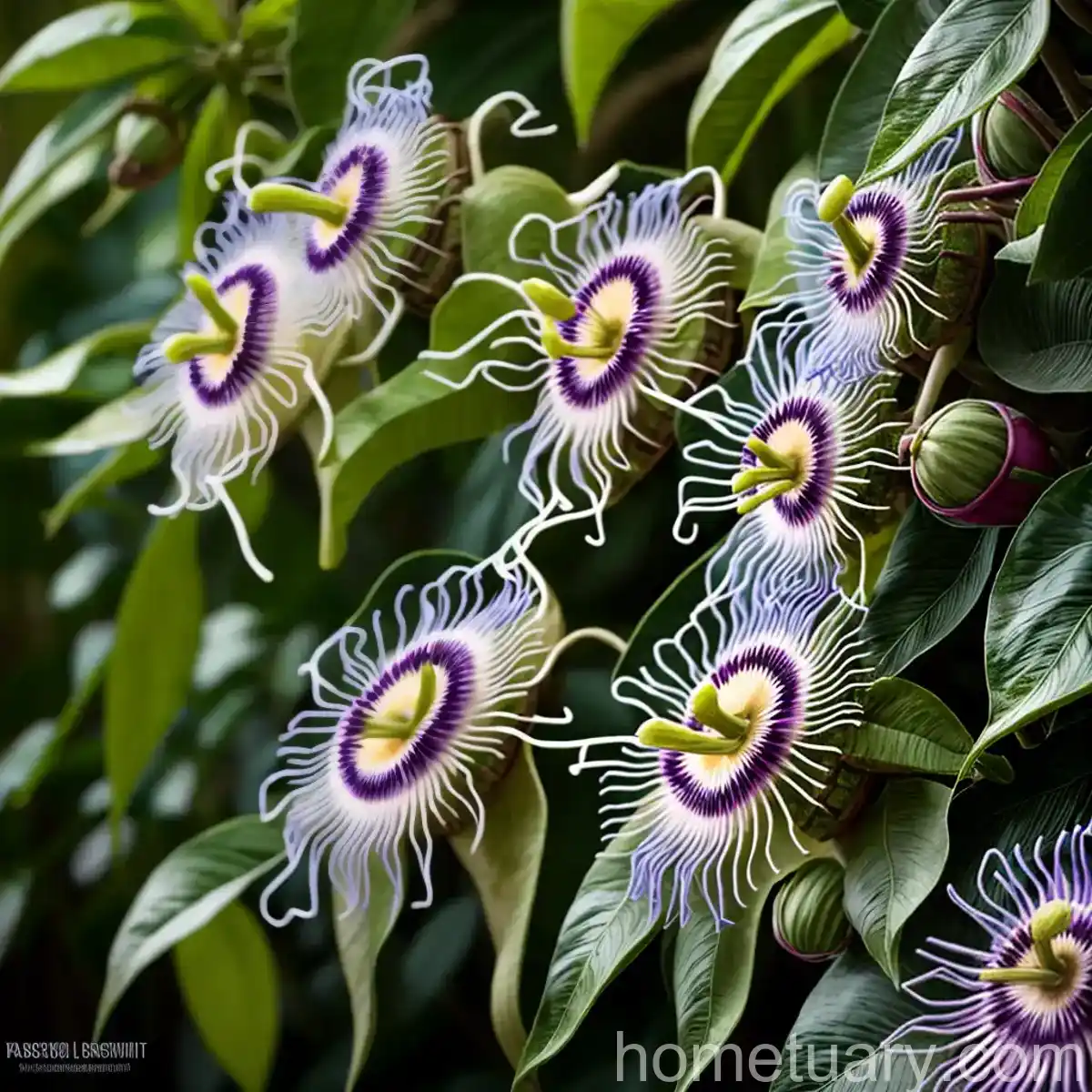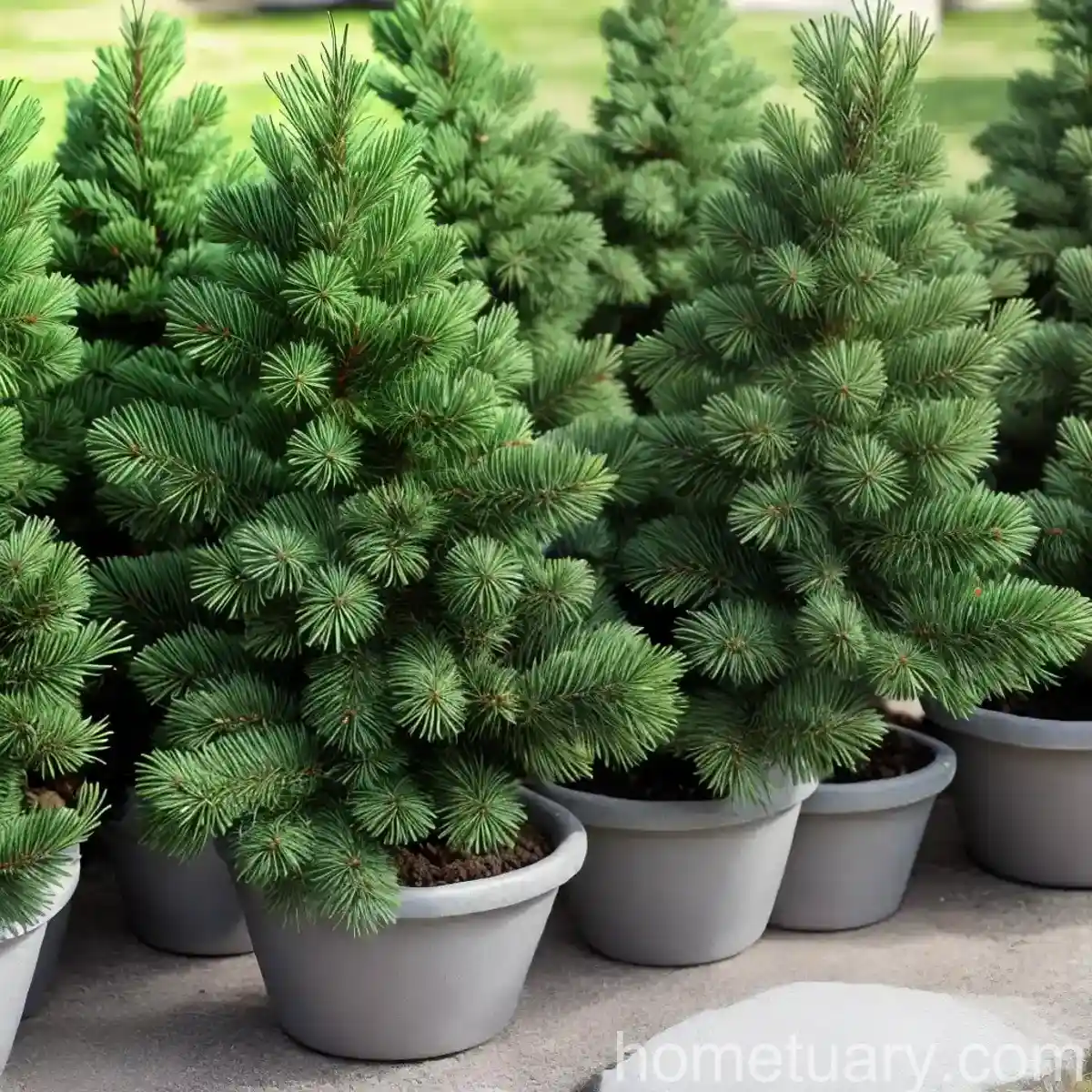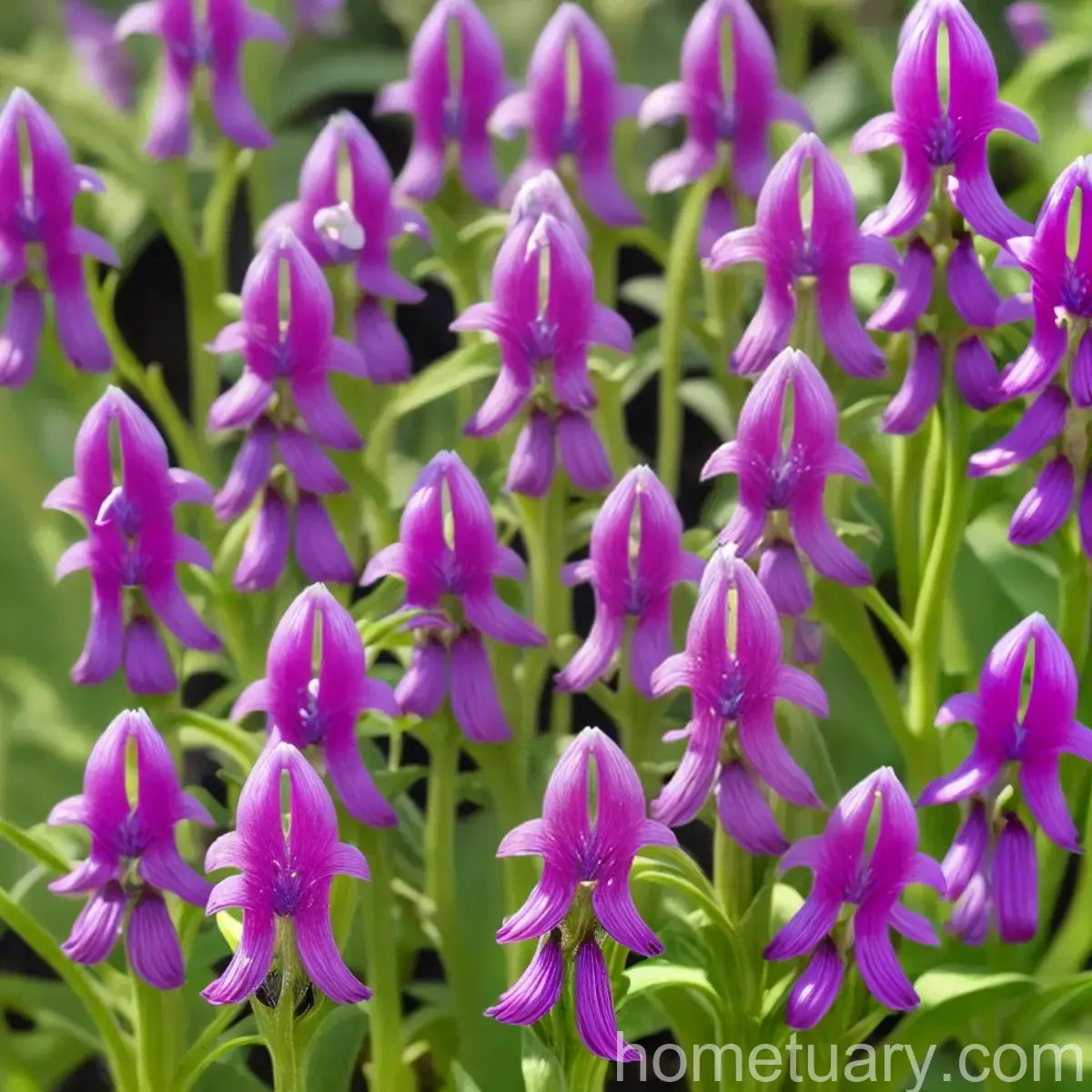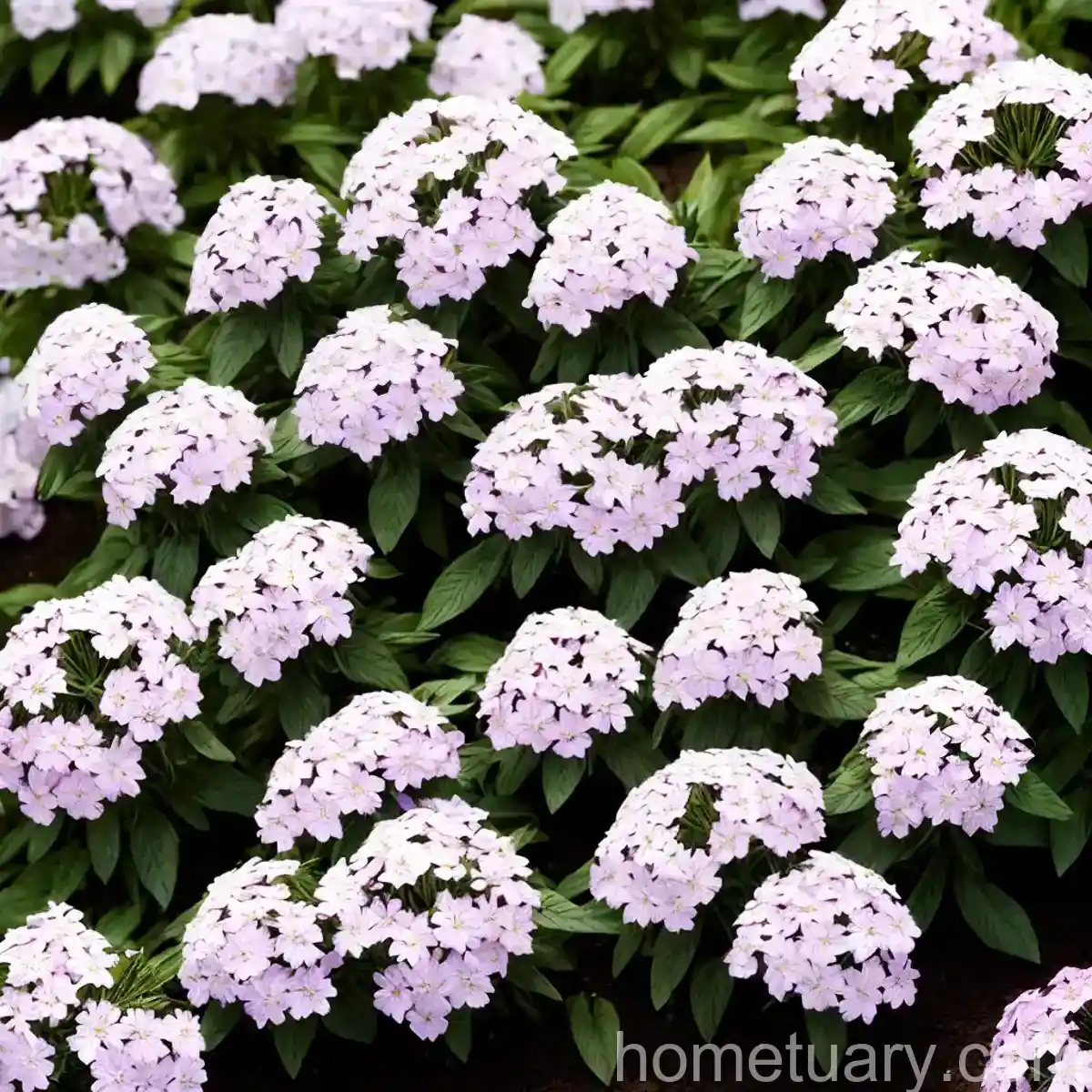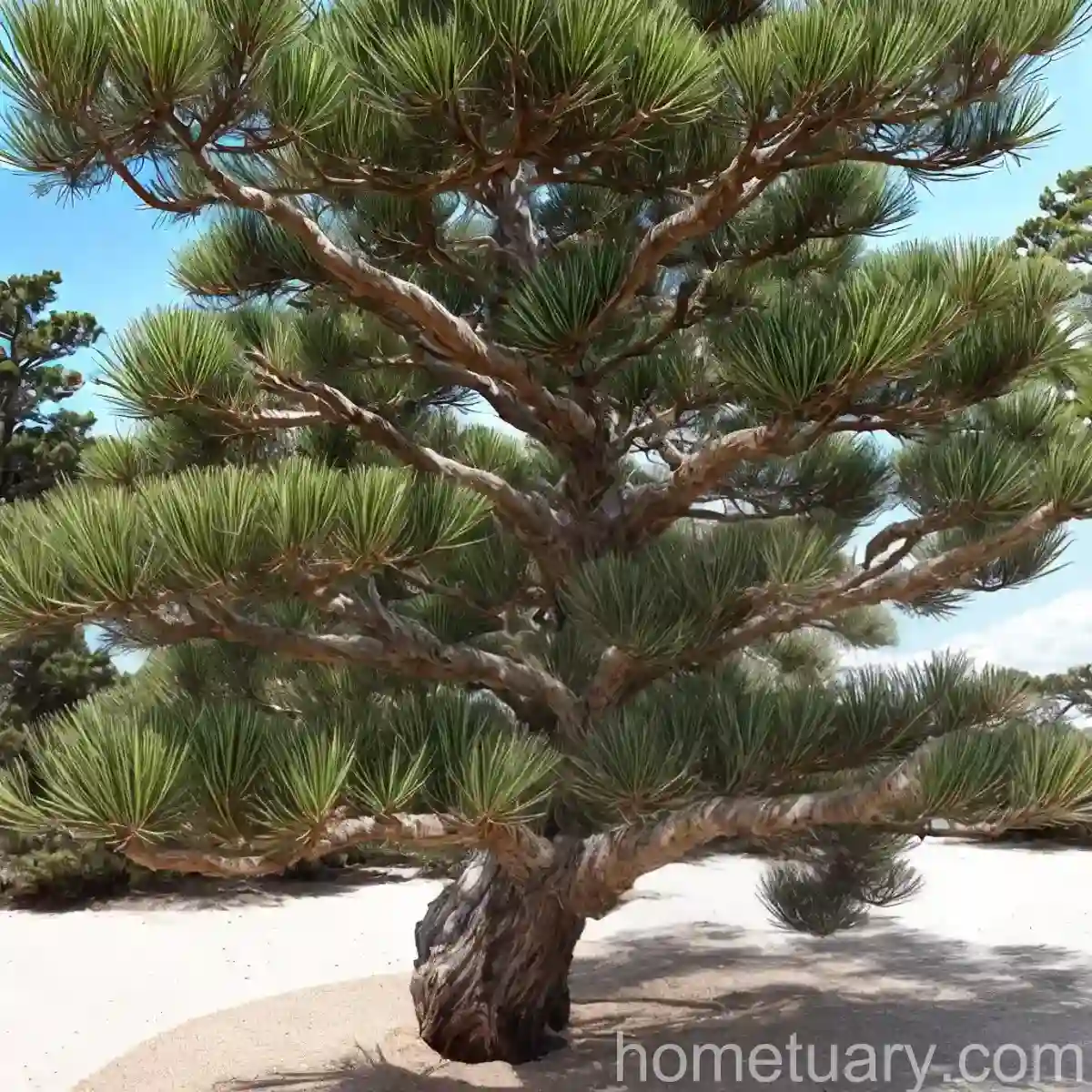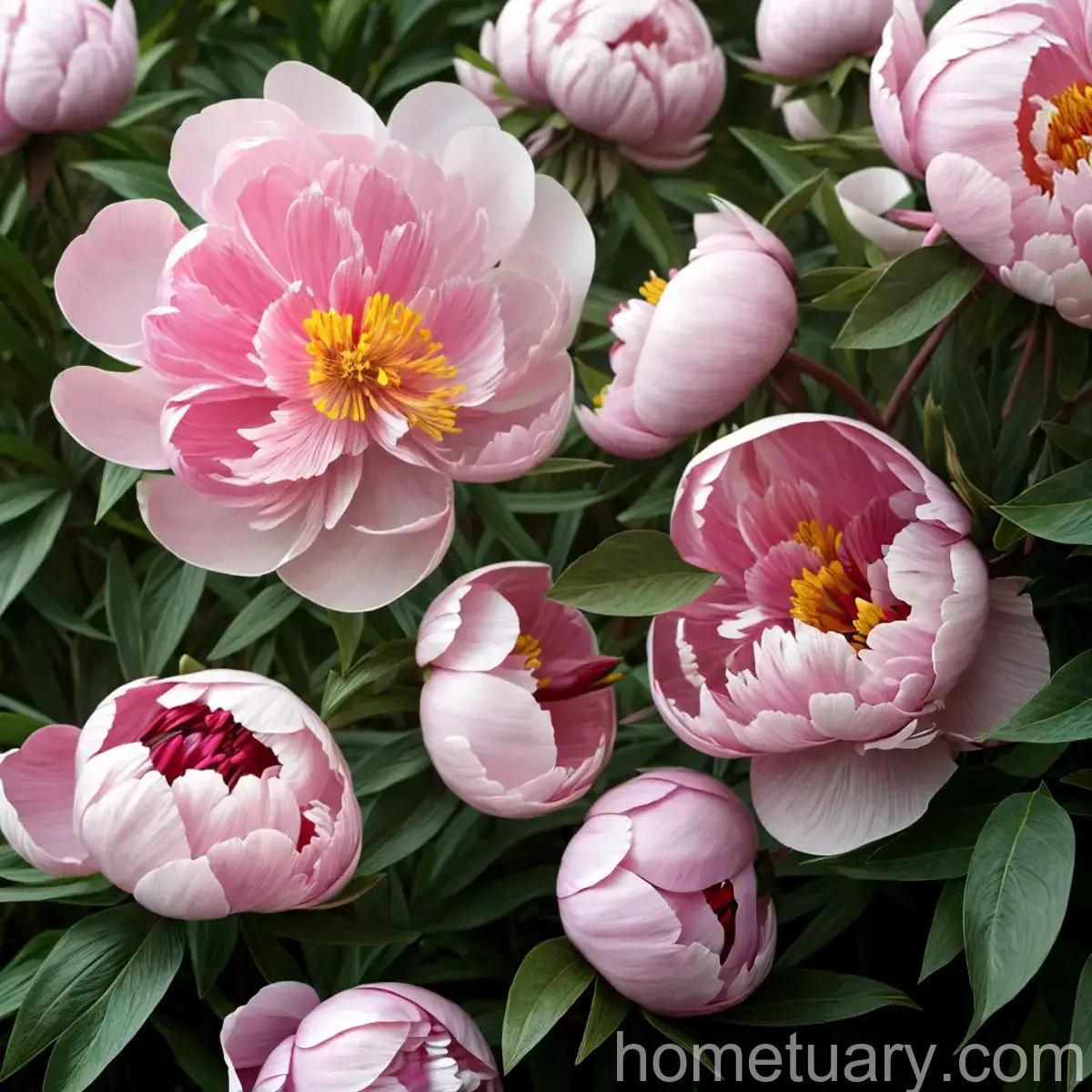Plant Scientist’s Guide to Passion Flower (Passiflora ‘Incense’)
What is passion flower (Passiflora ‘Incense’)?
Passion flower (Passiflora ‘Incense’) is a captivating flowering vine known for its exquisite and fragrant blooms. Belonging to the Passifloraceae family, this tropical plant has gained popularity as both an ornamental and medicinal plant. Its delicate blossoms and lush foliage make it a favorite among gardeners and horticulture enthusiasts.
Passiflora ‘Incense’ is renowned for its unique characteristics that make it a versatile addition to any garden. From its beautiful flowers to its potential medicinal uses, this plant offers a wide range of benefits and applications.
Key Takeaways – Passion Flower (Passiflora ‘Incense’)
- Botanical Name: Passiflora ‘Incense’
- Family: Passifloraceae
- Plant Type: Tropical Climbing Vine
- Common Names: Passion Vine, Passionflower Vine
- Characteristics: Fragrant Flowers, Butterfly Attractant, Medicinal Properties
- Cultural Uses: Ornamental Plant, Medicinal Herb, Herbal Tea Ingredient
Culture
Passiflora ‘Incense’ thrives under specific cultural conditions, including water, sunlight, fertilizer, soil type, pruning, and propagation. Understanding and meeting these cultural requirements are essential for ensuring the health and vigor of the plant.
Uses
Passion flower (Passiflora ‘Incense’) offers several notable uses, including:
- Ornamental Plant: Its stunning flowers and lush foliage make it a beautiful addition to gardens and landscapes.
- Medicinal Herb: The plant has traditional uses in herbal medicine, particularly for its properties in promoting relaxation and as an anxiety relief aid.
- Ingredient for Herbal Teas: The fragrant and aromatic flowers are used in the preparation of herbal teas, known for their calming effects.
Water
Passiflora ‘Incense’ requires regular watering, particularly during the growing season and dry spells. Adequate moisture is crucial for the plant’s growth and flowering.
- Frequency: Water the plant regularly, ensuring that the soil is consistently moist, but not waterlogged.
- Deep Watering: Provide deep watering to encourage healthy root development.
Sunlight
Passion flower thrives in abundant sunlight, making it essential to provide the plant with the right exposure to the sun.
- Full Sun: Place the plant in a location that receives at least 6-8 hours of direct sunlight daily.
- Protection: Shield the plant from intense midday sun in extremely hot climates to prevent sunburn on the leaves.
Fertilizer
Fertilizing Passiflora ‘Incense’ is vital for promoting vigorous growth and prolific flowering.
- Balanced Fertilizer: Use a balanced fertilizer with a higher phosphorus content to encourage blooming.
- Application: Apply fertilizer during the growing season, following the recommended dilution and frequency.
Soil
The right soil type and composition are crucial for the overall health and development of the passion flower vine.
- Well-Draining Soil: Use well-draining soil with a slightly acidic to neutral pH.
- Organic Matter: Incorporate organic matter into the soil to enhance its fertility and structure.
Pruning
Proper pruning helps maintain the passion flower’s shape, control its growth, and encourage flowering.
- Deadheading: Remove spent flowers to promote continuous blooming.
- Trimming: Prune the vine to manage its size and shape, especially in confined spaces.
Propagation
Propagating Passiflora ‘Incense’ allows for the expansion of its presence in the garden.
- Propagation Methods: Propagate through seeds, stem cuttings, or layering.
- Optimal Time: Propagate the plant during the active growing season for the best results.
Container Popularity
Passion flower vines are popular container plants due to their attractive appearance and adaptability to container growth.
- Patio Gardens: Ideal for adding vertical interest and vibrant blooms to patio or balcony gardens.
- Indoor Cultivation: Can be grown indoors in containers with proper sunlight and care.
Common Diseases and Pest Management
Passiflora ‘Incense’ is susceptible to certain diseases and pests that can affect its overall health. Understanding these common issues and their management is essential for maintaining a thriving passion flower vine.
Common Diseases
Passion flower may encounter the following diseases:
- Fungal Diseases: Including powdery mildew and root rot in poorly drained soil.
- Viral Diseases: Such as passion fruit woodiness virus, which can lead to stunted growth and reduced yield.
Disease Diagnosis
Early diagnosis of diseases is key to preventing further spread and damage to the plant.
- Visual Symptoms: Look for signs of discoloration, wilting, or unusual spots on the leaves and stems.
- Consultation: Seek advice from a plant expert or horticulturist for accurate disease identification.
Common Pests
The following pests are known to infest passion flower vines:
- Aphids: Sucking insects that can cause leaf distortion and reduce plant vigor.
- Spider Mites: Tiny pests that feed on plant sap, leading to yellowing and stippling of leaves.
Pest Control
Implementing appropriate pest control measures is critical to safeguard the passion flower vine from pest infestations.
- Natural Predators: Encourage natural predators such as ladybugs and lacewings to control aphid populations.
- Horticultural Oils: Use horticultural oils to manage spider mite infestations without harming beneficial insects.
Botanist’s Tips
Offering valuable insights and tips for cultivating and caring for Passiflora ‘Incense’ can enhance the overall gardening experience.
- Support Structures: Provide sturdy trellises or supports for the vine to climb and sprawl.
- Pollinator Magnet: The fragrant flowers attract pollinators, contributing to a biodiverse garden.
- Winter Protection: In colder climates, provide winter protection by mulching around the base of the plant and pruning back in late winter.
Fun Facts
Discovering fascinating and intriguing facts about passion flower (Passiflora ‘Incense’) adds a delightful aspect to the gardening journey.
- Symbolism: The intricate floral structure of the passion flower holds religious symbolism, representing the passion of Christ.
- Monarch Butterfly Host: Some passion flower species serve as host plants for the striking monarch butterfly.
Links to External Resources
Expand your knowledge and explore further insights into passion flower (Passiflora ‘Incense’) through these external resources:
- Passiflora Society International
- Royal Horticultural Society – Passion Flowers
- University of Florida IFAS Extension – Passionflowers
- American Horticultural Society – Passionflowers for the Garden
In conclusion, passion flower (Passiflora ‘Incense’) encompasses a blend of beauty, fragrance, and beneficial qualities, making it a captivating addition to gardens and landscapes. Understanding its cultural requirements, addressing potential issues, and appreciating its unique attributes contribute to a rewarding and enriching gardening experience.

